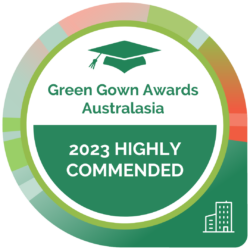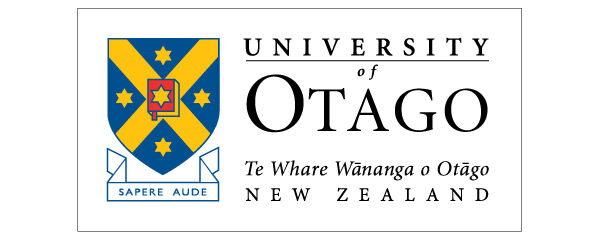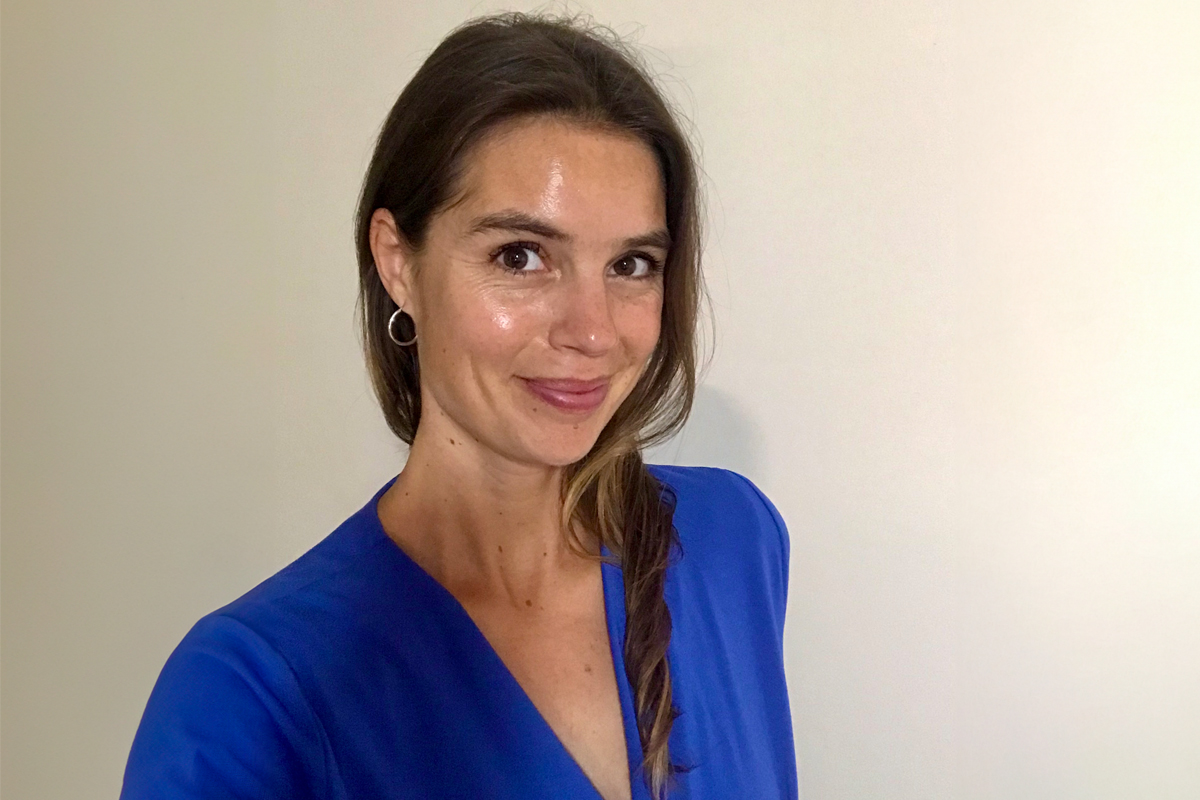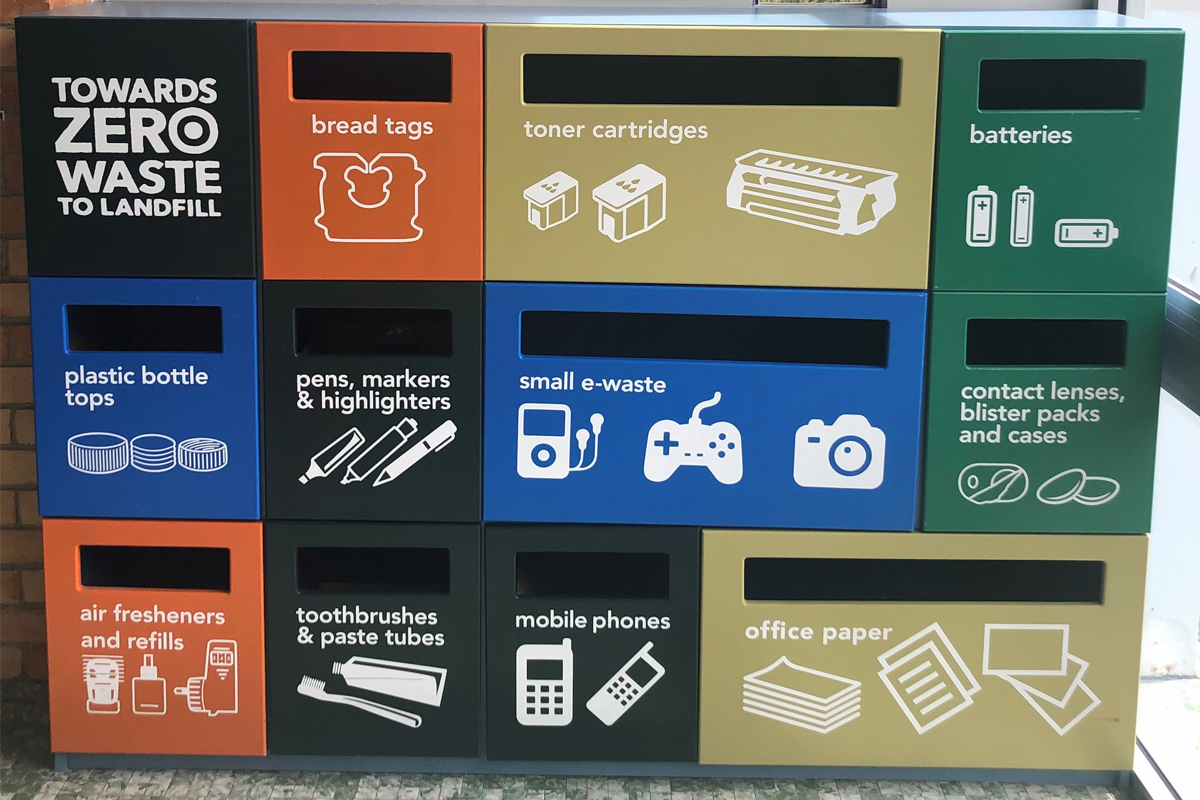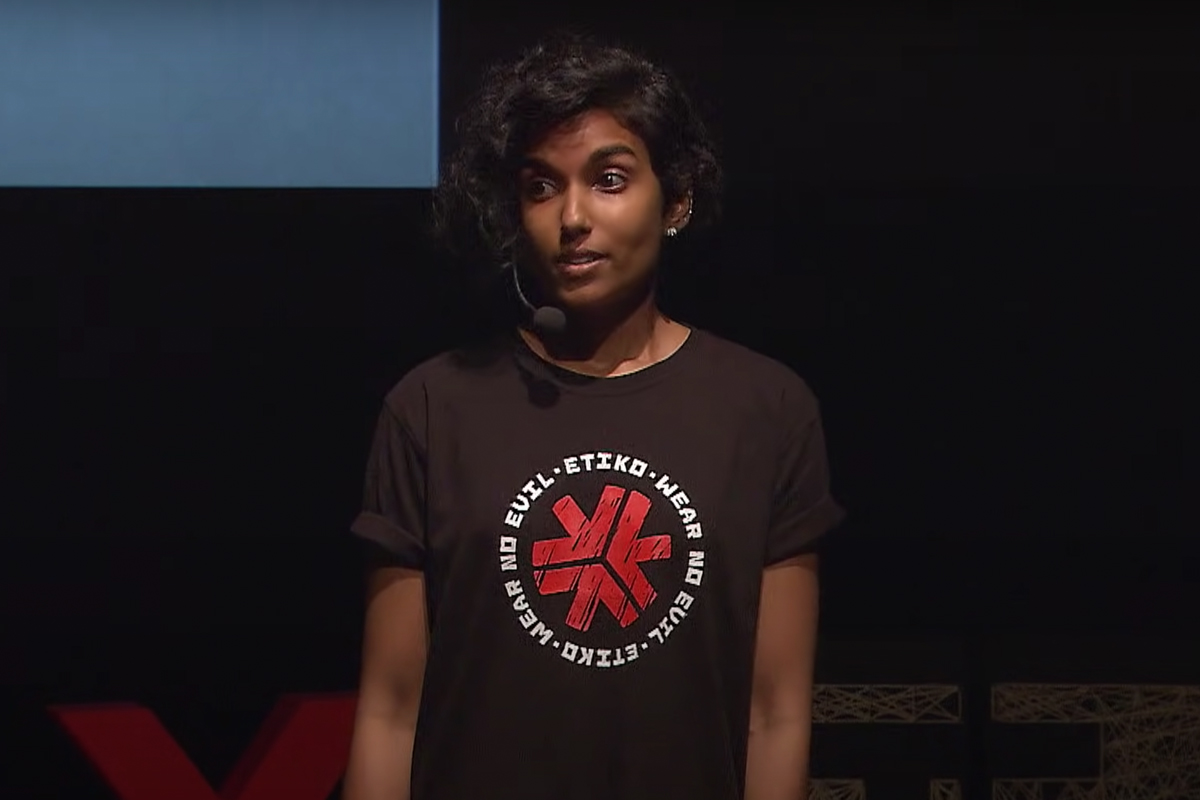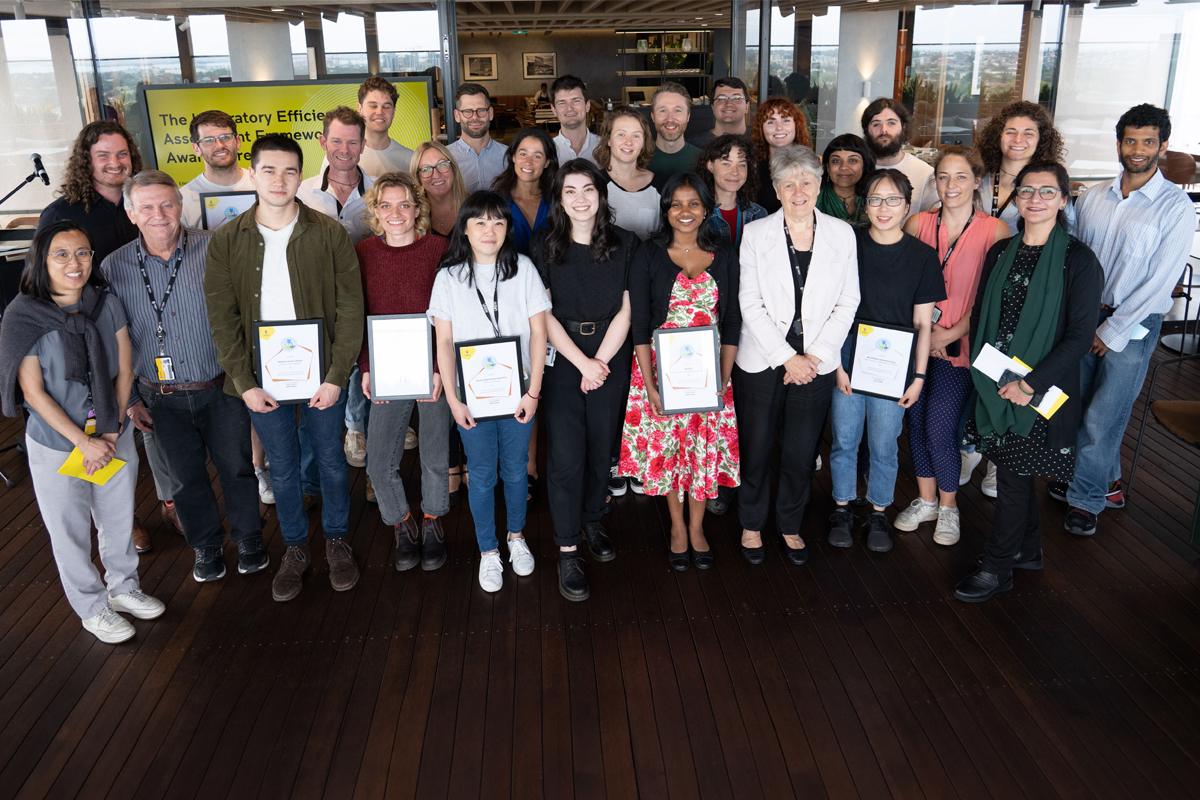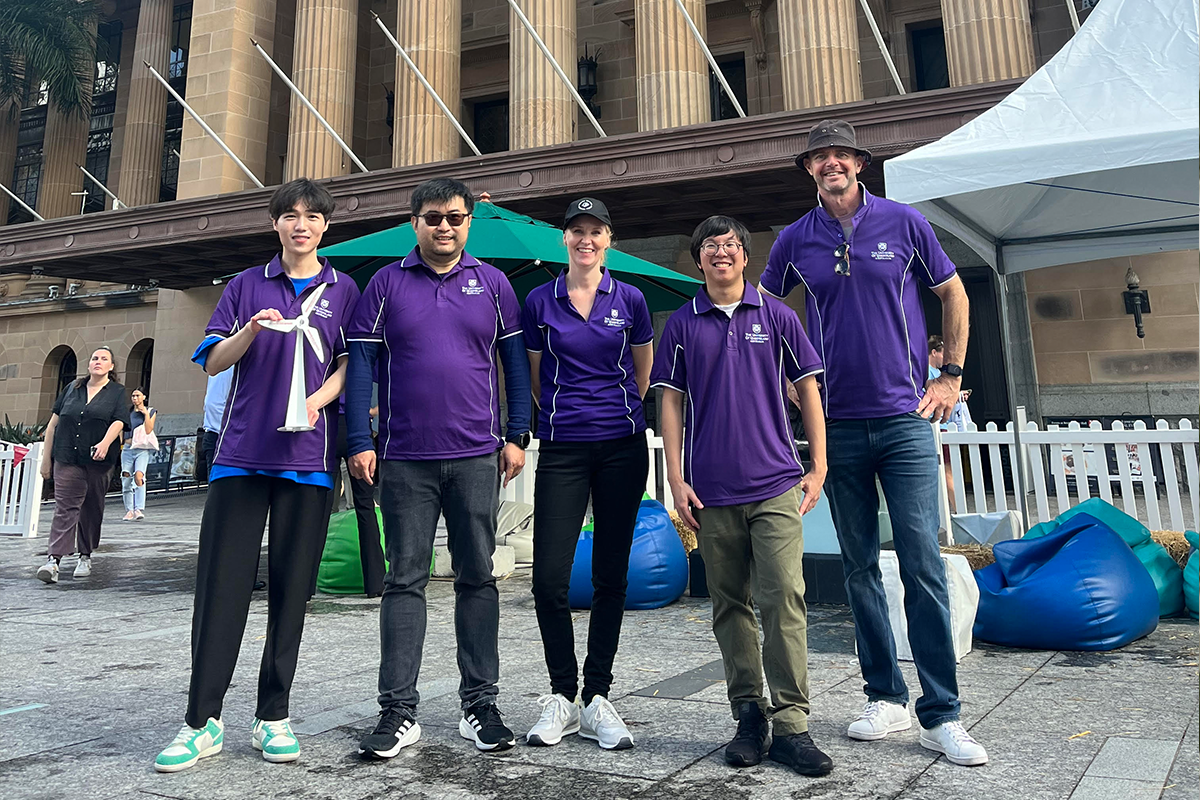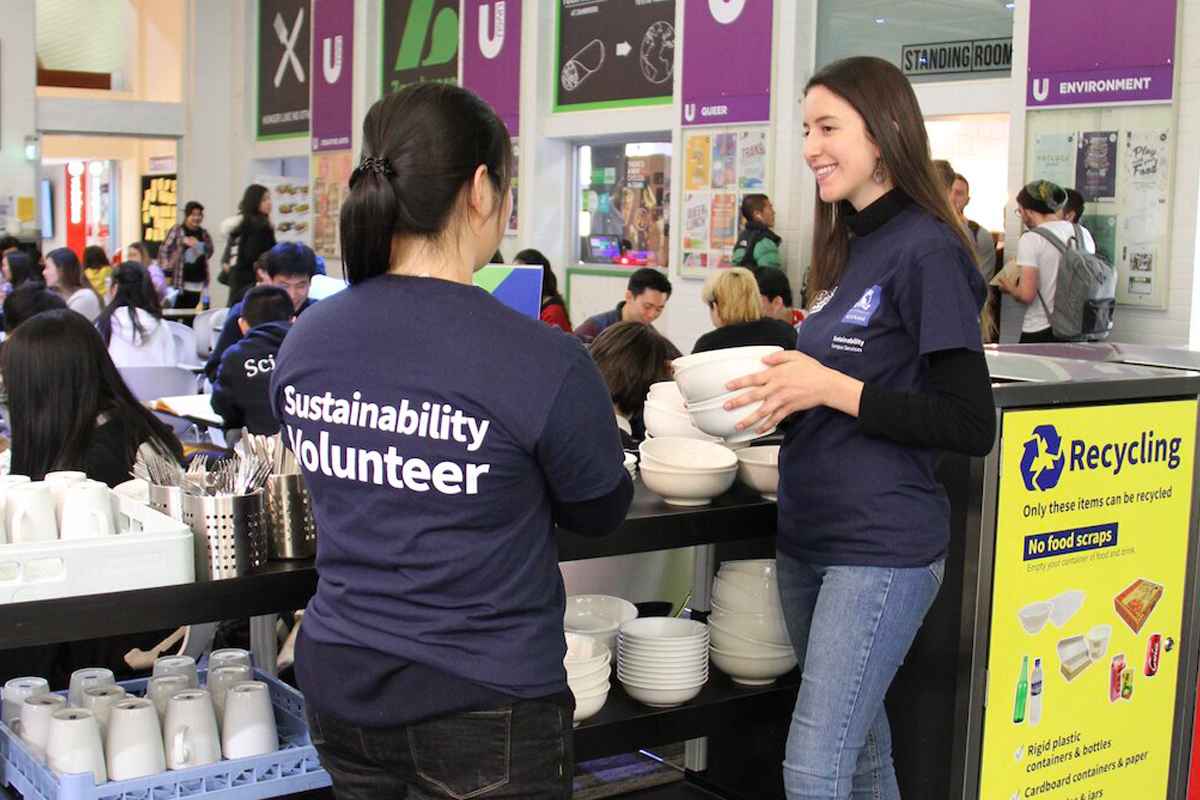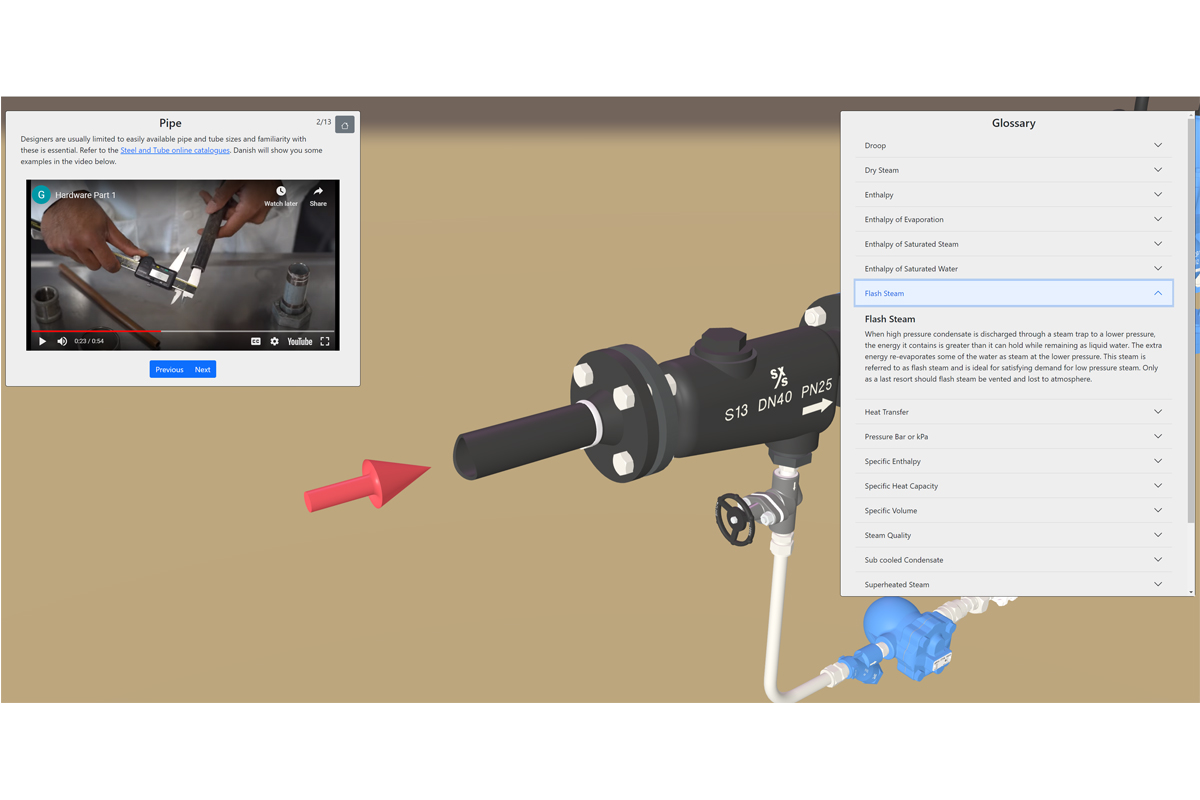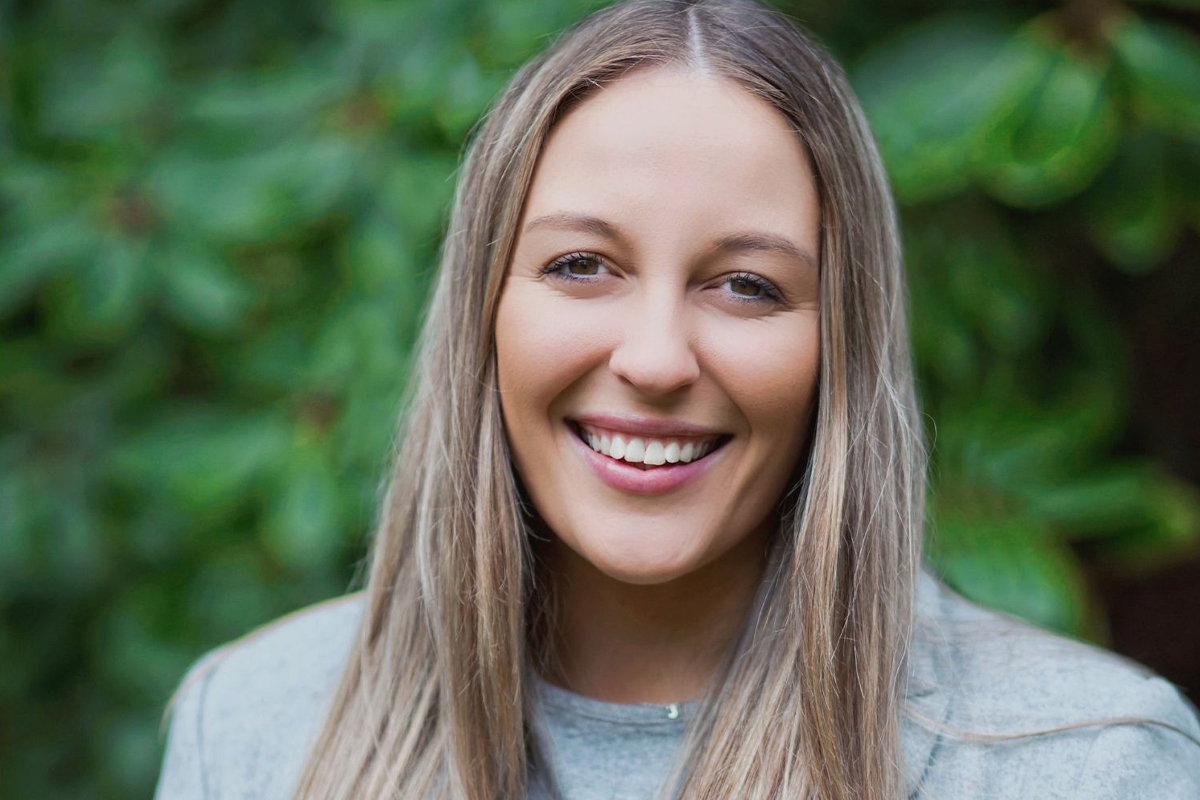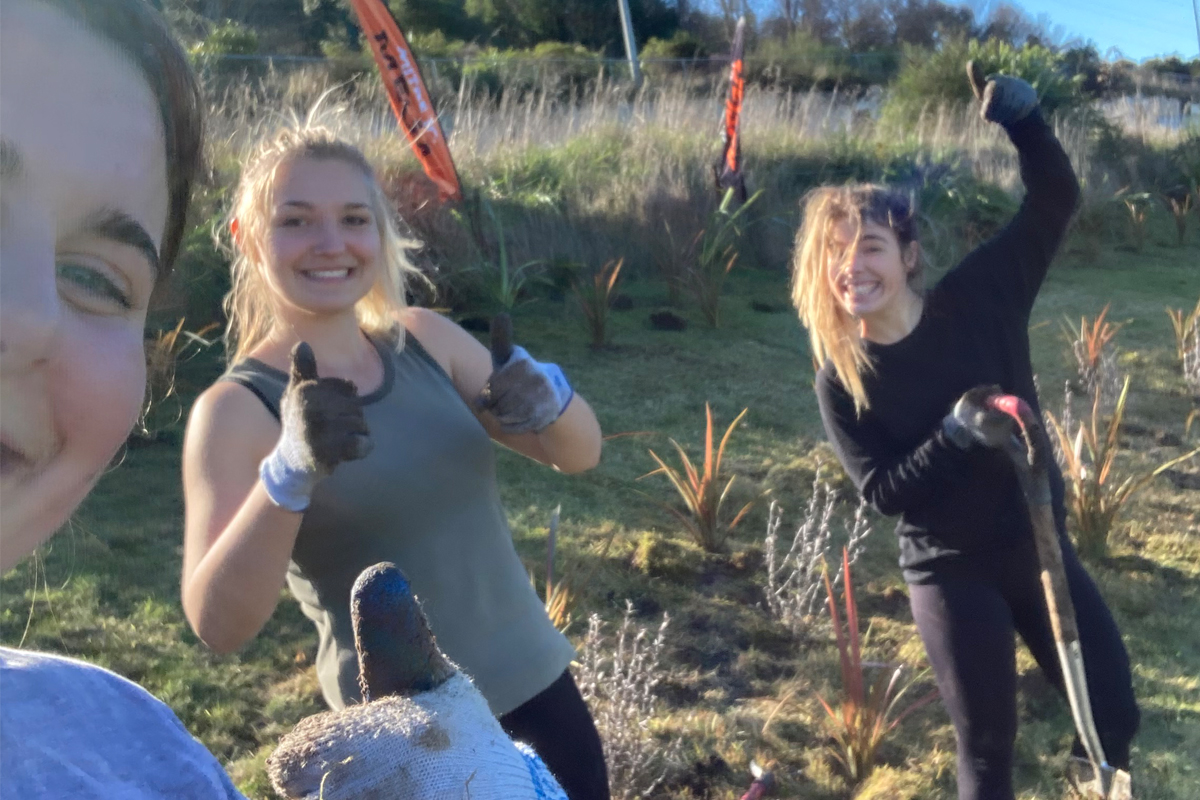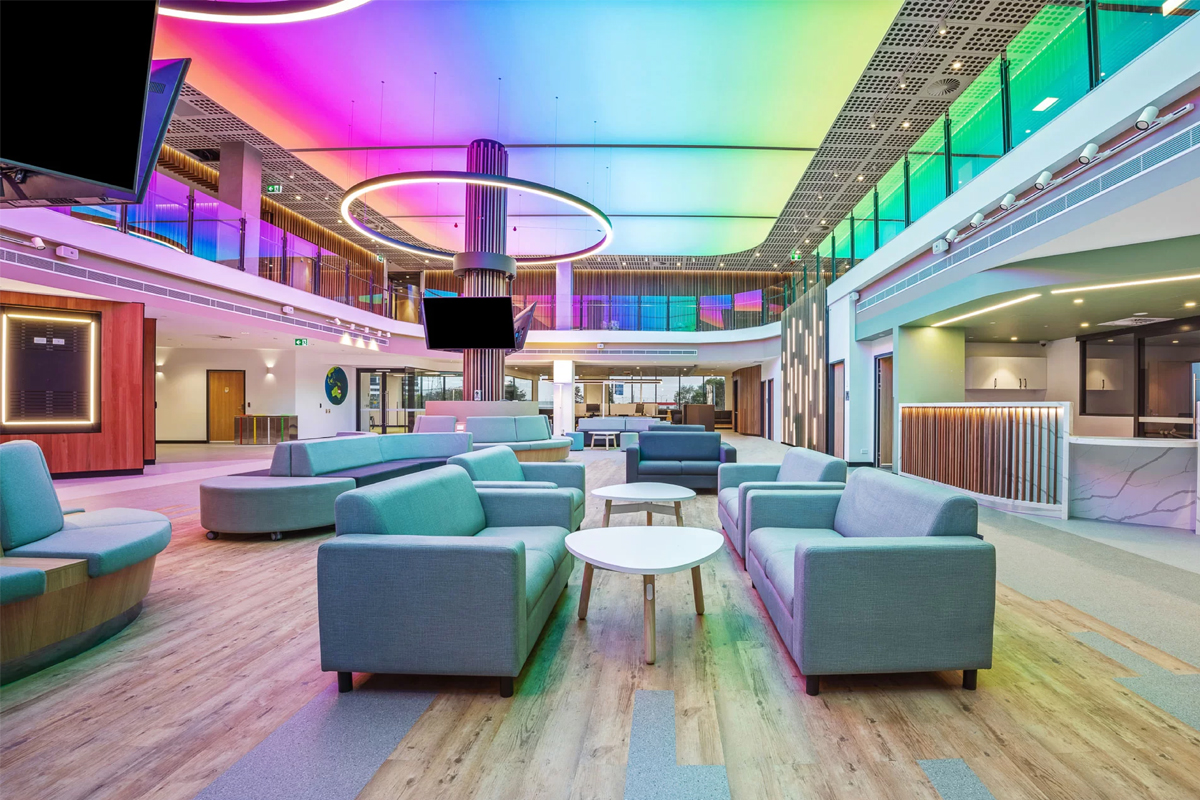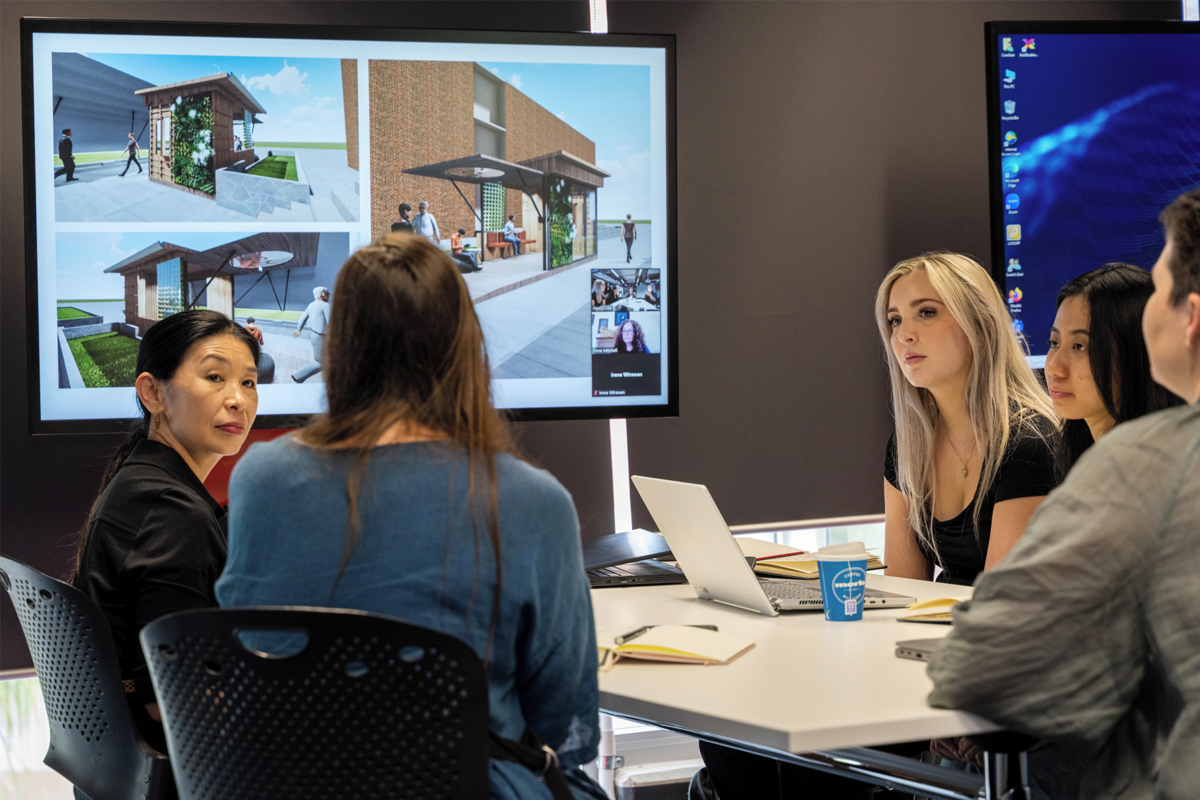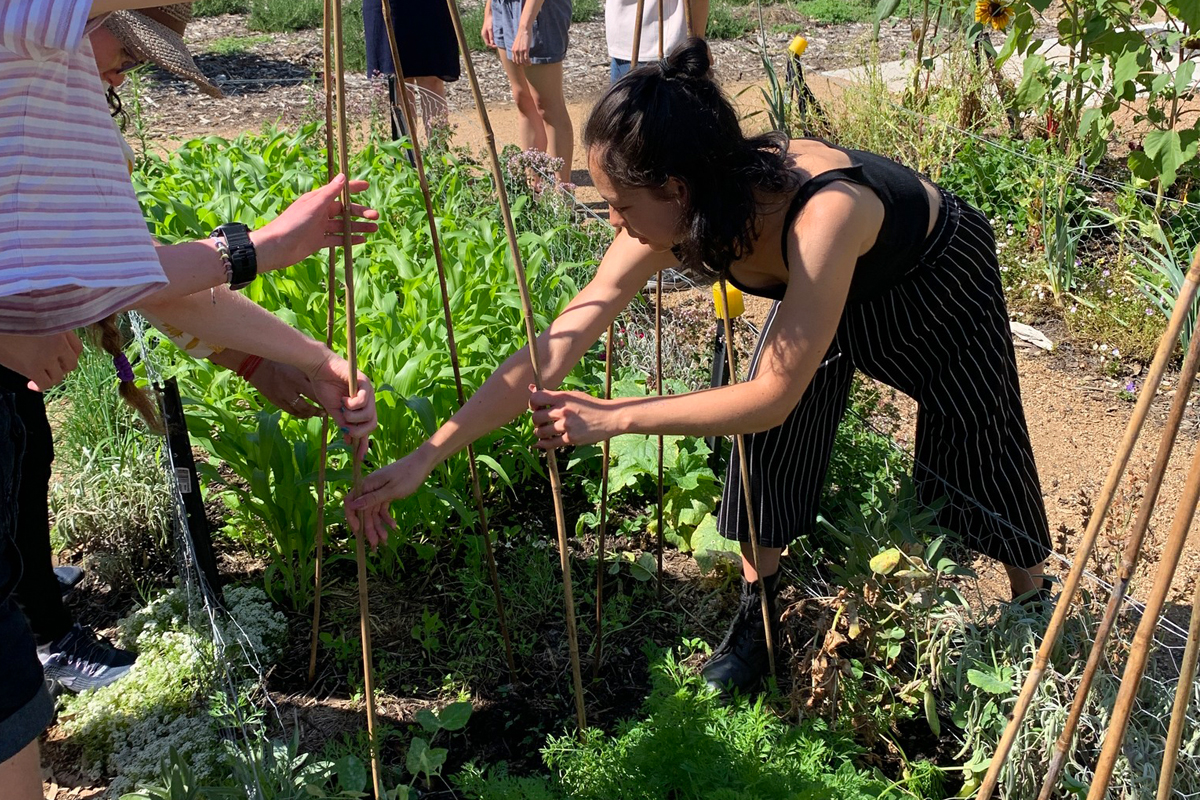Next Generation Learning & Skills/Winners category
Understanding the name of this project is an important part of understanding the Kaupapa (purpose). When the New Zealand Climate Change Commission provided advise to government about the action required to meet our commitments to the Paris accord, they described the implications of meeting head wind condition that would slow our progress (such as slower development of technology or behaviour change). They also spoke about tail wind conditions that would accelerate us towards our targets earlier (rather then let us ease off our effects and still get there on the same schedule). The phrase “Pūhau ana te rā” relates to traveling with your sails full of wind. In particular we associate it with a specific sail, that is an example of traditional knowledge that has almost been lost in time.
We see that undergraduates and emergent researchers are capable of generating significant tail wind conditions that will accelerate us towards a thriving future. However, there are limited opportunities to develop those capabilities, apply them to wicked problems, and share the learnings. That is the purpose of the initiative.
This initiative has evolved, to some extent organically, over a period of four years. The initial seed idea came from funding allocated through a collaboration with the local city council which offered funding for a summer scholarship. The scholarship was to be targeted to addressing a specific sustainability issue in a manner that would lead to real impact.
Summer scholarships are a common occurrence in academic areas, and usually enable a student to support a more senior researcher by contributing to a larger project. Pūhau ana te Rā is different in that it is hosted by Toitū te Taiao (the Sustainability Office) which is part of the operations division, it aims to allow the student to undertake an independent research project with outcomes that stand in their own right, and places extra emphasis on broader graduate attributes more than on discipline specific knowledge.
To be eligible students must have a recommendation from an academic, be an undergrad (or on a taught masters programme), and be continuing study in the following academic year. A list of project themes are publicised and students apply in writing and by interview. They stipulate the areas they are most interested in and an agreed project is established that matched the their current capabilities to the requirements of the project.
The story so far:
2019/20: the city council supported two scholarships to look at student sustainability issues.
- In collaboration with Otago Polytechnic looking at food waste composting on campus with the follow evidence of outputs
- A funded and ongoing campus composting project
- A publication exploring the decision making and values behind the project
- Another looking at sustainable flatting with the following evidence of output
- The Sustainability Sussed website
- The sustainability Sussed posted which was distributed to several hundred student flats and included as a A3 pull our student association flatting guide (pages 15-16)
2020/21: 8 students undertaking summer taking summer scholarships in a range of areas including Mapping organisations engaging with the SDGs across Otago (in collaboration with the UNRCE – Te Whaiao), Mapping formal Education for sustainability activity across Otago region. Based on the promise this project demonstrated the sustainability office moved to a new location with collaboration space for scaling Pūhau ana te rā in future years.
2021/22: 13 students received summer scholarship and undertook research into areas such as reducing food waste in flats, actionable recycling through the supply chain, establishing a GRI reporting regime for the University, mapping the university policy ecosystem to see sub systems of policies that relate to sustainability, evaluating opportunities for offsetting in native forest regeneration, mapping the organisations engaged in SDGs across Otago, and the inclusivity of student focussed sustainability initiatives from a disability perspective. The proceedings of the end of summer seminar, which we collaborated with students from other academic areas is available through this link. One of the most notable outcomes from this summer was the initial planning for what became Te Oraka (Student Engagement GGA winner 2022)
2022/23: Around 20 students engaged in summer scholarship activities. This is the first year that we captured the outputs in our journal. This journal is free open access and is targeting Diamond Standard Open Access, which in itself is a sustainability and equity action. You can read more about the journal here, but in essence, it is there to support undergraduates and emerging researchers. To do so we have established a diverse editorial board. We have also deliberated templated the review process to ensure a developmental approach to review feedback, and pair experienced academics with doctoral candidates to create an opportunity support those who are less experienced. We have paired with a research group in the Centre for sustainable Agriculture, Food, Energy, and Environment (CSAFE) to support the ethics application process, which was one of the challenges as an office which is within an operational division.
Themes that we addressed in 2022/23 included transport, native forest regeneration, food waste, incontinence waste, green labs, e-waste, developed a model for climate related cultural risk from a kaupapa Māori perspective, air travel emissions and conference planning, campus heating, green hydrogen, alternative proteins, and place-based wilderness journeys. The Proceedings of the end of summer seminar are available at this link, and the recordings of the presentations are available at this link.
We now have well established partners to fund these summer scholarships for the coming years. Partners who have realised great value from the work undertaken by the students, and are also interested in recruiting them into their organisations as graduates. We are now integrating the inclusion of summer scholarhsips as an option within procurement processes. For example, Waste Management New Zealand provide funding for two summer scholars each year as part of their waste contract with the University. We are also seeing internal interest in these opportunities. For example, the procurement team want a summer intern to produce report on our major suppliers to inform our next steps in managing the risk of modern slavery in our supply chain.
We have successfully established a hub for living labs. In our context we see lving labs ac situations where there is an operational challenge (related to sustainability) which is informed by research and invoves students in finding the resolution. It also has reasearchers working looking at our operations, and supervising scholarship students in the projects. From the student’s perspective, they are developing research skills as well as capabilities for a range of workplaces. As illustrated below, it’s a triad that generates more benefit that the individual parts can separately.
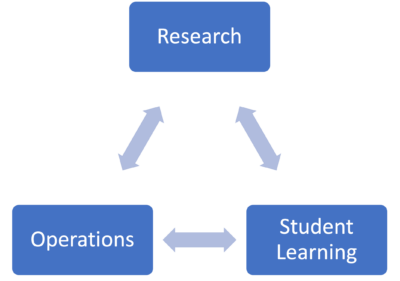
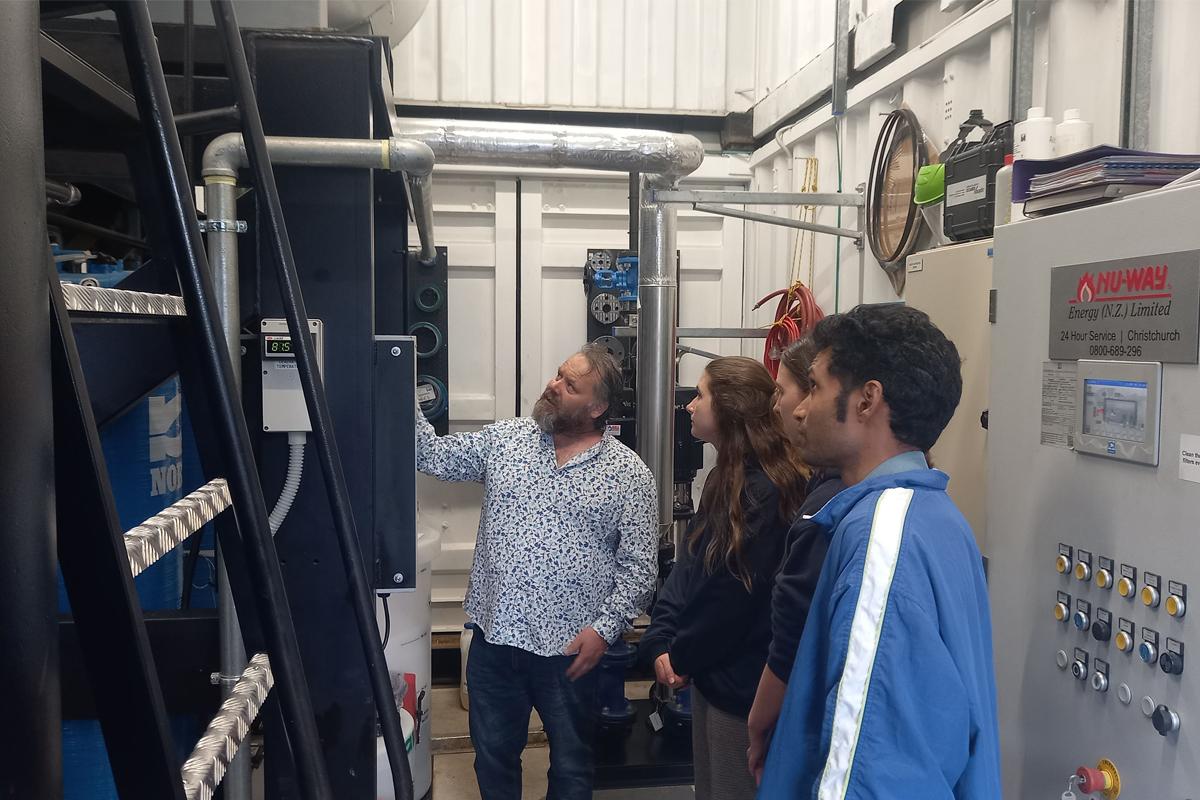
Environmental and social benefits
The projects that has been undertaken have created an impact in several specific areas:
- Informed changes to public transport system in Dunedin
- Supported food waste reduction in student accommodation
- Established a plan for a reuse centre (Te Oraka) that diverse student waste from land fill and promoted ac circular economy
- Directly informed workplace travel planning surveys
- Measured and provided evidence for registration of native forests in emissions trading scheme
- Provided the requirements for a procurement process which will allow the replacement of an LPG boiler with electricity.
Leadership and engagement
As described in an earlier section, understanding the name of this project is an important part of understanding its distinctive Kaupapa (purpose). When the New Zealand Climate Change Commission provided advise to government about the action required to meet our commitments to the Paris accord, they described the implications of meeting head wind condition that would slow our progress (such as slower development of technology or behaviour change). They also spoke about tail wind conditions that would accelerate us towards our targets earlier (rather then let us ease off our effects and still get there on the same schedule). The phrase “Pūhau ana te rā” relates to traveling with your sails full of wind. In particular we associate it with a specific sail, that is an example of traditional knowledge that has almost been lost in time.
We the role of undergraduates and emergent researchers in generating significant tail wind conditions as leadership and the development of the leaders of the future.
Significance to the sector
The relevance of Universities is under pressure and intense scrutiny. This offers a very public example of practice and research working hand in hand, producing learning that can be applied to relevant problems. The close links between operational, academic and wider engagement is a distinctive feature of Pūhau ana te rā.
Learner/Graduate employer impact
As described in the unexpected outcomes the direct impact on participants look very positive.
The opportunities that the projects have opened up for students after their scholarship. These include,
- a full scholarship for a masters student to continue their project to that higher level,
- full-time employment as an analyst to continue the work of their project with the co-founder,
- short-term contracts in local government to replicate their work in a different context.
Top 3 learnings
Related finalists
Climate Action/Winners
Climate Action/Winners
Benefitting Society/Winners
Benefitting Society/Winners
Creating Impact/Winners
Creating Impact/Winners
Sustainability Champion – Student/Winners
Sustainability Champion – Student/Winners
Creating Impact/Winners
Creating Impact/Winners
Leading the Circular Economy/Winners
Leading the Circular Economy/Winners
Sustainability Champion – Student/Winners
Sustainability Champion – Student/Winners
Creating Impact/Winners
Creating Impact/Winners
Diversity, Equity & Inclusion in Sustainability/Winners
Diversity, Equity & Inclusion in Sustainability/Winners
Next Generation Learning & Skills/Winners
Next Generation Learning & Skills/Winners
Sustainability Institution of the Year/Winners
Sustainability Institution of the Year/Winners
Leading the Circular Economy/Winners
Leading the Circular Economy/Winners
Next Generation Learning & Skills
Next Generation Learning & Skills
Sustainability Champion – Staff/Winners
Sustainability Champion – Staff/Winners
Sustainability Champion – Student/Winners
Sustainability Champion – Student/Winners
Next Generation Learning & Skills/Winners
Next Generation Learning & Skills/Winners
Sustainability Champion – Staff/Winners
Sustainability Champion – Staff/Winners
Sustainability Champion – Staff/Winners
Sustainability Champion – Staff/Winners
Student Engagement/Winners
Student Engagement/Winners
Other finalists
Climate Action
Climate Action
Sustainability Champion – Staff/Winners
Sustainability Champion – Staff/Winners
Student Engagement
Student Engagement
Creating Impact
Creating Impact
Sustainability Champion – Staff/Winners
Sustainability Champion – Staff/Winners
Sustainability Champion – Student
Sustainability Champion – Student
Top 3 learnings
Next Generation Learning & Skills/Winners category
Understanding the name of this project is an important part of understanding the Kaupapa (purpose). When the New Zealand Climate Change Commission provided advise to government about the action required to meet our commitments to the Paris accord, they described the implications of meeting head wind condition that would slow our progress (such as slower development of technology or behaviour change). They also spoke about tail wind conditions that would accelerate us towards our targets earlier (rather then let us ease off our effects and still get there on the same schedule). The phrase “Pūhau ana te rā” relates to traveling with your sails full of wind. In particular we associate it with a specific sail, that is an example of traditional knowledge that has almost been lost in time.
We see that undergraduates and emergent researchers are capable of generating significant tail wind conditions that will accelerate us towards a thriving future. However, there are limited opportunities to develop those capabilities, apply them to wicked problems, and share the learnings. That is the purpose of the initiative.
This initiative has evolved, to some extent organically, over a period of four years. The initial seed idea came from funding allocated through a collaboration with the local city council which offered funding for a summer scholarship. The scholarship was to be targeted to addressing a specific sustainability issue in a manner that would lead to real impact.
Summer scholarships are a common occurrence in academic areas, and usually enable a student to support a more senior researcher by contributing to a larger project. Pūhau ana te Rā is different in that it is hosted by Toitū te Taiao (the Sustainability Office) which is part of the operations division, it aims to allow the student to undertake an independent research project with outcomes that stand in their own right, and places extra emphasis on broader graduate attributes more than on discipline specific knowledge.
To be eligible students must have a recommendation from an academic, be an undergrad (or on a taught masters programme), and be continuing study in the following academic year. A list of project themes are publicised and students apply in writing and by interview. They stipulate the areas they are most interested in and an agreed project is established that matched the their current capabilities to the requirements of the project.
The story so far:
2019/20: the city council supported two scholarships to look at student sustainability issues.
- In collaboration with Otago Polytechnic looking at food waste composting on campus with the follow evidence of outputs
- A funded and ongoing campus composting project
- A publication exploring the decision making and values behind the project
- Another looking at sustainable flatting with the following evidence of output
- The Sustainability Sussed website
- The sustainability Sussed posted which was distributed to several hundred student flats and included as a A3 pull our student association flatting guide (pages 15-16)
2020/21: 8 students undertaking summer taking summer scholarships in a range of areas including Mapping organisations engaging with the SDGs across Otago (in collaboration with the UNRCE – Te Whaiao), Mapping formal Education for sustainability activity across Otago region. Based on the promise this project demonstrated the sustainability office moved to a new location with collaboration space for scaling Pūhau ana te rā in future years.
2021/22: 13 students received summer scholarship and undertook research into areas such as reducing food waste in flats, actionable recycling through the supply chain, establishing a GRI reporting regime for the University, mapping the university policy ecosystem to see sub systems of policies that relate to sustainability, evaluating opportunities for offsetting in native forest regeneration, mapping the organisations engaged in SDGs across Otago, and the inclusivity of student focussed sustainability initiatives from a disability perspective. The proceedings of the end of summer seminar, which we collaborated with students from other academic areas is available through this link. One of the most notable outcomes from this summer was the initial planning for what became Te Oraka (Student Engagement GGA winner 2022)
2022/23: Around 20 students engaged in summer scholarship activities. This is the first year that we captured the outputs in our journal. This journal is free open access and is targeting Diamond Standard Open Access, which in itself is a sustainability and equity action. You can read more about the journal here, but in essence, it is there to support undergraduates and emerging researchers. To do so we have established a diverse editorial board. We have also deliberated templated the review process to ensure a developmental approach to review feedback, and pair experienced academics with doctoral candidates to create an opportunity support those who are less experienced. We have paired with a research group in the Centre for sustainable Agriculture, Food, Energy, and Environment (CSAFE) to support the ethics application process, which was one of the challenges as an office which is within an operational division.
Themes that we addressed in 2022/23 included transport, native forest regeneration, food waste, incontinence waste, green labs, e-waste, developed a model for climate related cultural risk from a kaupapa Māori perspective, air travel emissions and conference planning, campus heating, green hydrogen, alternative proteins, and place-based wilderness journeys. The Proceedings of the end of summer seminar are available at this link, and the recordings of the presentations are available at this link.
We now have well established partners to fund these summer scholarships for the coming years. Partners who have realised great value from the work undertaken by the students, and are also interested in recruiting them into their organisations as graduates. We are now integrating the inclusion of summer scholarhsips as an option within procurement processes. For example, Waste Management New Zealand provide funding for two summer scholars each year as part of their waste contract with the University. We are also seeing internal interest in these opportunities. For example, the procurement team want a summer intern to produce report on our major suppliers to inform our next steps in managing the risk of modern slavery in our supply chain.
We have successfully established a hub for living labs. In our context we see lving labs ac situations where there is an operational challenge (related to sustainability) which is informed by research and invoves students in finding the resolution. It also has reasearchers working looking at our operations, and supervising scholarship students in the projects. From the student’s perspective, they are developing research skills as well as capabilities for a range of workplaces. As illustrated below, it’s a triad that generates more benefit that the individual parts can separately.


Environmental and social benefits
The projects that has been undertaken have created an impact in several specific areas:
- Informed changes to public transport system in Dunedin
- Supported food waste reduction in student accommodation
- Established a plan for a reuse centre (Te Oraka) that diverse student waste from land fill and promoted ac circular economy
- Directly informed workplace travel planning surveys
- Measured and provided evidence for registration of native forests in emissions trading scheme
- Provided the requirements for a procurement process which will allow the replacement of an LPG boiler with electricity.
Leadership and engagement
As described in an earlier section, understanding the name of this project is an important part of understanding its distinctive Kaupapa (purpose). When the New Zealand Climate Change Commission provided advise to government about the action required to meet our commitments to the Paris accord, they described the implications of meeting head wind condition that would slow our progress (such as slower development of technology or behaviour change). They also spoke about tail wind conditions that would accelerate us towards our targets earlier (rather then let us ease off our effects and still get there on the same schedule). The phrase “Pūhau ana te rā” relates to traveling with your sails full of wind. In particular we associate it with a specific sail, that is an example of traditional knowledge that has almost been lost in time.
We the role of undergraduates and emergent researchers in generating significant tail wind conditions as leadership and the development of the leaders of the future.
Significance to the sector
The relevance of Universities is under pressure and intense scrutiny. This offers a very public example of practice and research working hand in hand, producing learning that can be applied to relevant problems. The close links between operational, academic and wider engagement is a distinctive feature of Pūhau ana te rā.
Learner/Graduate employer impact
As described in the unexpected outcomes the direct impact on participants look very positive.
The opportunities that the projects have opened up for students after their scholarship. These include,
- a full scholarship for a masters student to continue their project to that higher level,
- full-time employment as an analyst to continue the work of their project with the co-founder,
- short-term contracts in local government to replicate their work in a different context.
Related finalists
Climate Action/Winners
Climate Action/Winners
Benefitting Society/Winners
Benefitting Society/Winners
Creating Impact/Winners
Creating Impact/Winners
Sustainability Champion – Student/Winners
Sustainability Champion – Student/Winners
Creating Impact/Winners
Creating Impact/Winners
Leading the Circular Economy/Winners
Leading the Circular Economy/Winners
Sustainability Champion – Student/Winners
Sustainability Champion – Student/Winners
Creating Impact/Winners
Creating Impact/Winners
Diversity, Equity & Inclusion in Sustainability/Winners
Diversity, Equity & Inclusion in Sustainability/Winners
Next Generation Learning & Skills/Winners
Next Generation Learning & Skills/Winners
Sustainability Institution of the Year/Winners
Sustainability Institution of the Year/Winners
Leading the Circular Economy/Winners
Leading the Circular Economy/Winners
Next Generation Learning & Skills
Next Generation Learning & Skills
Sustainability Champion – Staff/Winners
Sustainability Champion – Staff/Winners
Sustainability Champion – Student/Winners
Sustainability Champion – Student/Winners
Next Generation Learning & Skills/Winners
Next Generation Learning & Skills/Winners
Sustainability Champion – Staff/Winners
Sustainability Champion – Staff/Winners
Sustainability Champion – Staff/Winners
Sustainability Champion – Staff/Winners
Student Engagement/Winners
Student Engagement/Winners
Other finalists
Climate Action


Driving Towards Tomorrow’s Campus with Vehicle-to-Grid EV Technology
As part of Flinders University’s drive to innovate and become a leader in climate action, the University launched its Vehicle-to-Grid (V2G) initiative. This involved installing and maintaining 20x V2G and smart chargers for its growing electric vehicle fleet. Leveraging 100% renewable energy generated by ENGIE’s Willogoleche Wind Farm and Flinders University’s solar power systems, this enables the storage of renewable energy in EV batteries to be discharged on campus during peak demand periods. Hence, allows for these EV fleets to operate as a Virtual Power Plant (VPP) to deliver peak demand management and optimization of behind-the-meter generation.
Overall, this initiative demonstrates the reliability and scalability of bi-directional and uni-directional smart-charging systems for EVs in reducing GHG emissions while facilitating teaching, research, and innovation opportunities. Moreover, it exemplifies a sustainable and innovative solution to scale energy storage technology and increase renewables.
Sustainability Champion – Staff/Winners

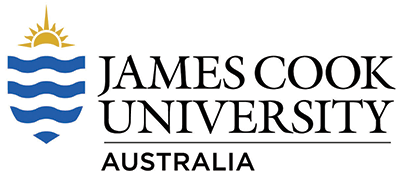
Brandan Espe
Environmental Officer / Acting Grounds Supervisor
Brandan has brought over 50 federally listed Endangered species of plant into the James Cook University living collection, many of which have never been cultivated and are found in no other collection in the world.
Of these, over half have been sustainably wild collected, inclusive of field and clone data, so they can be used for ongoing conservation, research and teaching, the remaining being sourced from private and partner organisations through favours of service or trades.
He personally funded the project from 2019-2022, until funding was awarded for the program due to its success, with the program now being engrained into the Universities landscapes for ongoing management should he leave JCU, creating a threatened species legacy collection.
The program has now expanded beyond this, with an additional 48 species now funded for further addition, some of which are only known from less than 5 sightings in history.
Student Engagement


Sustainability Leaders creating real impact!
La Trobe created a unique Sustainability Leaders volunteering program to increase engagement with students on campus and empower them to act against waste and promote sustainability. It included the following initiatives:
- Promoting the reusable crockery implementation,
- Increasing knowledge action of other students on campus to diversion comingled recycling and organic waste from landfill.
- Focus on waste audits and data,
- Improved signage through new waste posters for students living on campus.
- Collaboration with Cirka (our cleaning and waste partner) to create a waste wall and;
- Learning all things sustainability (net zero, biodiversity, waste, reusables, engagement)
These initiatives yielded significant results and with a reduction in waste contamination by almost 40% at the residential buildings and engagement with over 80 groups of people for the Reusable Revolution.
Creating Impact


Where knowledge meets habits: Empowering students for a sustainable tomorrow
Our online Sustainability Challenges offer participants an engaging, self-paced learning experience centered around a specific United Nations Sustainable Development Goal (UNSDG). Requiring minimal resourcing and at zero-cost to participants, we’ve created replicable, compact, scalable, and impactful learning opportunities that result in real impact.
The Challenges follow a structured process that moves participants from knowledge gain to simple action to celebration, to establish small but mighty habits relating to waste and carbon emissions. This approach recognises that knowledge alone is often insufficient to drive behaviour change, and that ease of action and celebration are crucial components in creating sustainable habits.
Sustainability Champion – Staff/Winners

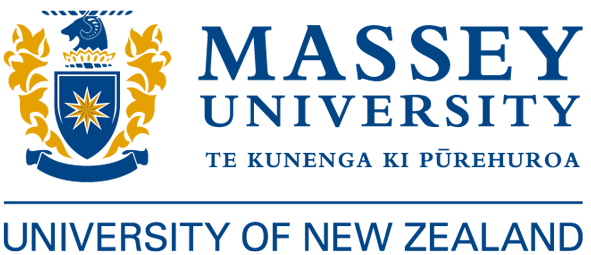
Catherine (CeeJay) Donovan
Veterinary nurse – Anaesthesia
From establishing the Massey Vet School Green Team to leading impactful initiatives, my commitment to environmental sustainability has been making waves. With the help of my team, I have accomplished numerous small, yet meaningful actions, including integrating a sustainability lecture for final year vet students and implementing battery recycling alongside rechargeable battery use. Our larger projects encompass the introduction of green waste and soft plastics recycling bins, an energy audit resulting in power-saving measures, and playing a part in a successful rubbish audit. I spearheaded the ‘6 in 6’ campaign, empowering individuals with six simple steps for workplace sustainability. Through the SustainaVet social media pages I help to educate and inspire peers nationwide. As the Massey School of Veterinary Science sustainability champion, I had the privilege of speaking at the annual veterinary conference on sustainability in clinical practice. Currently I’m conducting pioneering research on responsible cat waste disposal. Together, we’re forging a greener future, one initiative at a time.
Sustainability Champion – Student


Louis Walmsley
SDG Coordinator Monash Association of Sustainability, Office Bearer Monash Student Association’s Environmental and Social Justice Department, Masters of Environment and Sustainability Student
Louis is an exceptional student sustainability leader at Monash University. His passion and dedication to sustainability have made a significant impact on the community. Louis’s values revolve around sustainability, which is evident upon meeting him. He actively participates in various sustainability groups, demonstrating his commitment to creating a more environmentally conscious society.
One of Louis’s notable involvements is with Precious Plastic Monash, where he organizes remarkable events and fosters collaboration among like-minded individuals, student groups, and staff. His contributions to the Monash Association of Sustainability have allowed him to conduct valuable research on plastic usage and climate action, resulting in positive changes within the university.
Through his work with the Monash Student Association, Louis has engaged hundreds of students in fun and interactive sustainability initiatives. He took the initiative to organize a sustainability food fair, which was one of the largest sustainability-related events held at Monash post-COVID. This accomplishment is a true testament to Louis’s hard work and creativity.
Louis is an outstanding student leader whose efforts in sustainability have had a lasting impact on Monash University and its community. His inspiring nature resonates with everyone who knows him.

